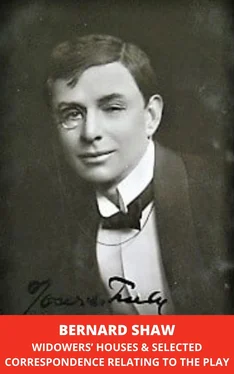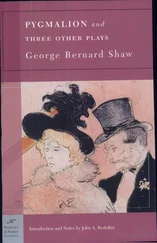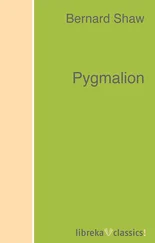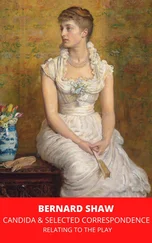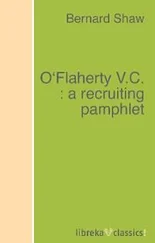Bernard Shaw
Widowers’ Houses & Selected Correspondence Relating to the Play
Edited by Vitaly Baziyan
Copyright © 2021 Vitaly Baziyan
All rights reserved
An original didactic realistic play Widowers’ Houses was first called The Way to a Woman’s Heart, later the Rhinegold, and then German Rheingold, and at the end Widowers’ Houses. It was begun 1884 and finished 1892. The play was first published as no.1 in the Independent Theatre book series of plays by Henry and Co., London in May 1893.
This publication from a revised edition Plays: Pleasant and Unpleasant. The First Volume , Containing the Three Unpleasant Plays ( Widowers’ Houses, The Philandered, & Mrs Warren’s Profession ) published by Constable and Company Ltd, London 1919 is a handmade reproduction from the original edition, and remains as true to the original work as possible. The original edition was processed manually by means of a classic editing which ensures the quality of publications and the unrestricted enjoyment of reading.
The selected correspondence of Bernard Shaw relating to the play Widowers’ Houses contains 160 letters and entries written between 1885 and 1933. Sources of this collection are prior publications Collected Letters of Bernard Shaw published by Max Reinhardt; Bernard Shaw’s Letters to Siegfried Trebitsch published by Stanford University Press; Ellen Terry and Bernard Shaw: a correspondence and Our Theatres in the Nineties published by Constable and Company Ltd., London; Shaw on Theatre published by Hill and Wang, New York; Bernard Shaw’s Letters to Granville Barker published by Theatre Arts Books, New York; Shaw published by Oliver & Boyd, Edinburgh; Shaw’s Theatre published by University Press of Florida Book; Advice to a Young Critic published by Peter Owen Limited, London; The Diary of Beatrice Webb published by the Belknap Press of Harvard University Press; The Letters of Sidney and Beatrice Webb published by Cambridge University Press; edition of letters published by University of Toronto Press; Bernard Shaw: A Bibliography, in Two Volumes, Band 1 published by Oxford University Press; The Playwright & the Pirate. Bernard Shaw and Frank Harris: A Correspondence, Bernard Shaw: The Drama Observed and Bernard Shaw: The Diaries, 1885 – 1897 published by Pennsylvania State University Press.
The book represents a significant addition to modern-day understanding of Shaw’s play Widowers’ Houses ‘ being a drama of the cash nexus in plot’, and reveals his thoughts on a wide variety of issues as well as his relationships with contemporaries.
George Bernard Shaw won The Nobel Prize in Literature for 1925 “for his work which is marked by both idealism and humanity, its stimulating satire often being infused with a singular poetic beauty.”
George Bernard Shaw won the Oscar in 1939 for Best Screenplay and Dialogue for his role in adapting his play Pygmalion for the screen.
Bernard Shaw’s punctuation and spelling were mostly kept by the editor. Italics were used for plays titles, books, newspapers and unfamiliar foreign words or phrases. Christian names, surnames, positions and ranks were added in square brackets when they were omitted but are necessary for a better understanding. Cuts of a few words are indicated by three dots and longer omissions by four dots.
The ebook cover was created by the editor using the photograph of a British actor James Welch who successfully played Lickcheese in the play Widowers’ Houses .
The play Widowers’ Houses was given a copyright performance by the Independent Theatre Society at the Royalty Theatre in London on the 9th December 1892. The copyright performance was staged in the United Kingdom for the purpose of securing the author’s copyright over the text. There was a fear that according to the Dramatic Literary Property Act 1833, if a play’s text was published, or a rival production staged, before its official premiere, then the author’s rights would be lost.
Characters in order of appearance:
Harry Trench – W. J. Robertson
William de Burgh Cokane – Arthur Whittaker
Mr Sartorius – T. W. Percival
Lickcheese – James Welch
Waiter – E. P. Donne
Porter – W. Alison
Blanche – Florence Farr
The Parlourmaid – N. de Silva
Producer – Herman de Lange
Widowers’ Houses was next time presented in public by Miss Annie Horniman’s Company at the Midland Theatre in Manchester on 7th October 1907.
Characters in order of appearance:
Harry Trench – A. G. Somers
William de Burgh Cokane – Charles Bibby
Mr Sartorius – Chas. Charrington
Lickcheese – B. Iden Payne
Waiter – Stanley Roberts
Porter – Rathmell Wilson
Blanche – Mona Limerick
The Parlourmaid – Clare Greet
Producer – B. Iden Payne
Selected Correspondence Relating to the Play Widowers’ Houses
1/ Bernard Shaw’s diary
Preliminary Notes 1885
RESIDENCE: 36 Osnaburgh St. London, N.W. all the year round. Name of Landlord: Johns. We had the second floor, and a room on the third in which I slept.
HABITS: Work every day in the reading room at the British Museum. Dined every day at the Wheatsheaf Vegetarian Restaurant, Rathbone Place. When I lay too late in the mornings (which was most often the case) I did not go to the Museum until after dinner, which I took at 14 or 15 o’clock. My habit of spending every Saturday evening with J. K. [James Kingston] Barton at his house, 2 Courtfield Road, Gloucester Road, S. W. was kept up but with many interruptions owing to the frequency of both his engagements and mine. The Sunday evenings with Pakenham Beatty at 62 Sinclair Road, West Kensington were much interrupted by lectures etc., and finally ended on his removal to Mill Hill Park.
OBITUARY: 19th April. My father at 21 Leeson Park Avenue, Dublin. [19th] December. My maternal grandfather, Walter Bagnall Gurly.
OCCUPATION: Journalism. William Archer procured me an appointment as musical critic to The Dramatic Review , a journal started in February by an Irishman named Edwin P. Palmer. My first article appeared in the second number (8/2/—). At first I contributed only signed articles, but later in the year I wrote a set of paragraphs every week for the musical column. The paper ceased to pay in the autumn, and I am now keeping up the paragraphs without any hope of getting paid for them. Archer also procured me a place on the reviewing staff of The Pall Mall Gazette , in which my first article appeared on the 16th May. The Magazine of Music applied to me for articles pretty regularly during the later months of the year. One of these contributions was a scrap of fiction, written in 1881, entitled “ The serenade .” Contributed art notes to Mrs [Annie] Besant’s magazine Our Corner under the heading “Art Corner” every month from June onward. Early in the year, I edited [Laurence] Gronlund’s Co-operative Commonwealth for The Modern Press . I gave up the idea of completing the Lodge Index on my father’s death, and handed it over to Thomas Tyler.
NOVELS: In April Cashel Byron’s Profession began its course through To-Day and The Irrational Knot through Our Corner . The latter was paid for at the rate of 5/— a page. The work of revising and correcting them, and the journalism, left me no time to do any original work.
LECTURES, ETC.: Took an active part in the Fabian Society. Wrote two pamphlets for it, and worked on the executive. For lectures and debates see Engagements. Gave my first provincial lecture at Leicester on 22nd November. Continued a member of the Bedford, Browning, and Dialectical Societies and attended the meetings of the New Shakspere Society pretty regularly.
Читать дальше
